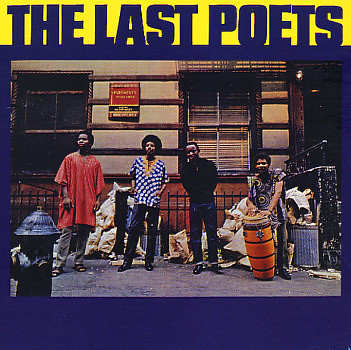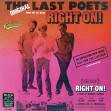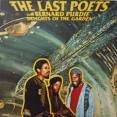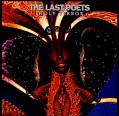Islam is at the heart of an emerging global anti-hegemonic culture that combines diasporic and local cultural elements, and blends Arab, Islamic, black and Hispanic factors to generate "a revolutionary black, Asian and Hispanic globalization, with its own dynamic counter-modernity constructed in order to fight global imperialism. (say what!)
Thursday, May 19, 2005
ronaldo in palestine
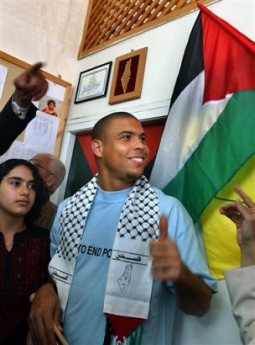
While we are on the subject of Brazil, I just saw a story in Al-Jazeera about Ronaldo, a Brazilian soccer player, who came to Palestine to inaugurate a children's center in Ramallah which was named after him.
Wednesday, May 18, 2005
brazil's racial history
assata and cuban racism
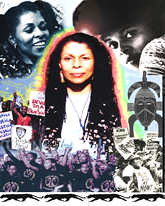
Assata Shakur (former Black Panther, accused and convicted of murder, who escaped from prison and is an exile in Cuba) is back in the news these days. The US State department recently increased the reward for her capture up to $1 million. As a Black Cuban-American who tries to think of himself as progressive it is somewhat tricky to tease apart and correctly delineate my thoughts and feelings on the subject. It's not that I think Assata should be returned. There is no question that the FBI had a policy of framing the Panthers (several have had convictions overturned after years in prison) and there is a strong argument for her innocence.
But at the same time, I wish so many activists wouldn't just simplistically and uncritically ride Castro's jock. Yes the revolution did away with some of the more egregious forms of institutional racism in Cuba and should be given credit for that. But what have you done for me lately?
A really good book which gives a counter-balancing view of race in Cuba, is Carlos Moore's Castro, the Blacks and Africa. Carlos Moore is of West Indian parentage, born and raised in Cuba, and who was later considered "lieutenant" to Afrocentric scholar Cheikh Anta Diop (who comes from a Senegalese Muslim family). The book goes into a lot of detail on the persistent and varied forms of racism in Cuba, even after the revolution. And it goes on to point out how certain expression of difference by Afro-Cubans were seen as dissent and suppressed by the state.
In a lot of ways, the Cuban regime's support for Assata Shakur is very hypocritical because Castro would never tolerate a Black Panther-like party in Cuba. (If one arose, all its members would be swiftly thrown in jail along with the political prisoners Cuba already has). It's pretty clear that Assata and other such figures in the past are being used as pawns by Castro in order to embarrass the US. True commitment to liberation means opposing oppression everywhere whether it is carried out by the US government or Cuban one.
If you don't have time to read Moore's thorough account, some articles available online in similar spirit can be found below:
Cuba Begins to Answer Its Race Question
A brief piece about Carlos Moore which appeared in Essence magazine in 1989
National Identity On Trial: The Case of Post-Revolutionary Cuba a paper by Peter Kwaku Maybarduk
An excerpt from the book, A Nation for All: Race, Inequality, and Politics in Twentieth-Century Cuba
And finally, a more personal piece by Dr. Miguel A. De La Torre about pre-revolutionary race relations in Cuba and his own experiences as a Latino in the US called MASKING HISPANIC RACISM: A CUBAN CASE STUDY
Tuesday, May 17, 2005
guantanamo and the quran
only human
In Christianity, man was made "a little lower than the angels". Human beings are fallen, full of original sin, and are so twisted that it takes a dramatic radical miracle to save humanity. To err is human, to forgive divine. And if a human being shows up who manages to act righteously, the event is so amazing that such a person must be God incarnate.
But in Islamic anthropology, the angels were commanded to bow down to Adam. To be a human being means to be the khalif (vicegerent) of Allah. There is no original sin. We were all born Muslim, according to fitra (nature). Not just Jesus and Muhammad but all the prophets are believed to be sinless. And the prophets don't come to radically change our nature, the come to remind us of the things we already know deep inside. A righteous human being, is just doing what a human being is supposed to be doing, is exemplifying human nature. But when we fall short of that high standard, we are actually less than human, we are acting like apes and pigs.
....
It reminds me of the gom jabbar scene in Dune. The gom jabbar is a kind of test. A person puts their hand inside a special box while someone else holds a poison-tipped needle by their jugular. The box induces strong increasing sensations of pain. But the person being tested must demonstrate a strong determination, willpower, and concentration and keep their hand in the box or else they will be killed with the needle. If they pass the test they will be considered "human". If not, they are an animal.
There are actually a number of other places where Arabic/Islamic themes play a role in the Dune stories. Here is actually a brief complilation of some of them. And if you are unfamiliar with Dune altogether is the main Dune page on Wikipedia
the pen is funnier than the sword
"i am malcolm x"
nuh washington
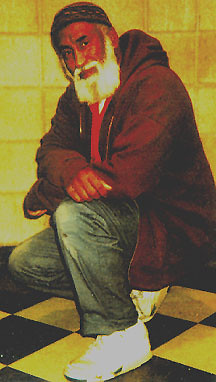
Nuh Washington is another former Black Panther who became Muslim and eventually passed away a few years ago. Here is a page which gives more background about his life.
Monday, May 16, 2005
the people, united...
History can never be made by one man, we must smash this one quickly. History is made only by the masses of the people, this is clear. Even a, cursory glance at the fallacious presentation of history by the American capitalist system, will demonstrate just this. Take George Washington, as bad as he is. Put him in the middle of Valley Forge, by himself, surrounded by the British, he can do nothing. Take Martin Luther King as righteous as he is. Put him in the middle of Birmingham by himself, speaking out against racism, he would be lynched. But you take this same King, you take this same Washington. Put them in Valley Forge, put them in Alabama. Surround them with thousands of people who have the same ideas they do, willing to make those ideas reality and the situation changes drastically.
This was from Kwame Ture (formerly Stokely Carmichael) speaking on BDP's Edutainment album. And he has a point. Alot of people are caught up in personality cults and it has the potential to be counter-productive. It's one thing if the "leader" becomes a role model and an example to learn from, but it can be disempowering if you start to believe that you need to wait for a hero out there to arrive and save you. Like Tina says "We don't need another hero".
Sunday, May 15, 2005
on the beach with dave chappelle
On the Beach With Dave Chappelle
Posted Sunday, May. 15, 2005
In this week's TIME, Christopher John Farley reveals why Dave Chappelle decided to leave his hit show and what he's been up to since he disappeared to South Africa two weeks ago. Last Friday night, TIME Johannesburg bureau chief Simon Robinson met with the comic at uShaka Marine World on the beach in the South African port of Durban. In a ninety minute conversation, Chappelle was eager to set the record straight on why he suddenly left the U.S. and what he's doing in South Africa. Here's Robinson's account:
Dave Chappelle shows up to our interview in a red t-shirt, blue jeans and shiny white sneakers. He lopes around in his usual style, pacing a lot, but does not seem like a man struggling to speak or to order his thoughts at all. He's lucid and thoughtful and a couple of times asks me to give him some time to think about answers. He concedes that he is dealing with a lot of issues and mentions that he had consulted a psychiatrist about a week ago for a forty minute session. He is also quite fastidious about keeping his new sneakers clean and stops at least twice to wipe smudges off their toes.
The first thing Chappelle wants is to dispel rumors—that he's got a drug problem, that he's checked into a mental institution in Durban—that have been flying around the U.S. for the past week. He says he is staying with a friend, Salim Domar, and not in a mental institution, as has been widely reported in America. Chappelle says he is in South Africa to find "a quiet place" for a while. "Let me tell you the things I can do here which I can't at home: think, eat, sleep, laugh. I'm an introspective dude. I enjoy my own thoughts sometimes. And I've been doing a lot of thinking here."
The picture he paints—and it seems a fairly honest and frank assessment— is of someone struggling to come to terms with a new position and power who's still figuring out how to come to grips with how people around him are reacting to the $50 million deal he signed last year with Comedy Central. Without naming specific characters, he seems to blame both some of his inner circle (not his family) and himself for the stresses created by last year's deal.
"There were things that overwhelmed me," he says. "But not in the way that people are saying. I haven't spent any of the money. All that stuff about partying and taking crack is not true. Why do I live on a farm in Ohio? To support my partying lifestyle?"
The problems, he says, started with his inner circle."If you don't have the right people around you and you're moving at a million miles an hour you can lose yourself," he says. "Everyone around me says, 'You're a genius!'; 'You're great!'; 'That's your voice!' But I'm not sure that they're right." And he stresses that Comedy Central was not part of the problem and put no more than normal television restrictions on what he could do.
"You got to be careful of the company you keep," Chappelle says. "It's hard to know how much to say. One of the things that happens when people make the leap from a certain amount of money to tens of millions of dollars is that the people around you dramatically change.
"During my ascent, I've seen other people go through that wall to become really big. They always said that fame didn't change them but that it changes the people around them. You always hear that but you never really understand it. But now that I'm there that makes a lot of sense and I'm learning what that means. You have to have people around you that you can trust and aren't just out for a meal ticket."
The breakdown in trust within his inner circle seems to have led him to question the material they were producing. He seems obsessed with making sure the material is good and honest and something that he will be proud. "I want to make sure I'm dancing and not shuffling," he says. "What ever decisions I make right now I'm going to have live with. Your soul is priceless." The first two seasons of his show "had a real spirit to them," he says. "I want to make sure whatever I do has spirit."
But Chappelle also says that he must share the blame for the stalled third season. "I'm admittedly a human being," he says. "I'm a difficult kind of dude." His earlier walkout during shooting "had a little psychological element to it. I have trust issues, things like that. I saw some stuff in myself that I just didn't dig. It's like when I brought a girl home to my mom and it looked as if my mom really didn't like this girl. And she told me, 'I like her just fine. I just don't like you around her.' That's how I feel in this situation. There were some things about myself that I didn't like. People got to take inventory from time to time. That's what this [coming to South Africa] is for."
This is Chappelle's second trip to South Africa. He first came to Durban, and visited Salim, in 2000. Chappelle won't tell me exactly how he met Salim but describes him as a family friend. A soft-spoken Muslim, Salim seems also to be something of a sounding board to Chappelle, who converted to Islam several years ago. While Chappelle is not doing a formal religious course in Durban, says Salim, who wore a simple cotton robe and hung back through the interview and photo shoot and only spoke when I asked him a question, "if he wants to talk religion then I'm there as someone to talk to." Says Chappelle: "This is kind of my spot where I can come to fill my spirit back up. Sometimes you neglect these things if you are running on a corporate schedule." The crux of his crisis seems to boil down to his almost obsessive need to "check my intentions." He uses the phrase a few times during the interview and explains that it means really making sure that he's doing what he's doing for the right reasons.
His family, he says, has been a huge support over the past eight months. "They've been phenomenal really, just incredible. What beautiful people. Everyone loves their family but it's good if you can like them too."
His religion is also crucial. "I don't normally talk about my religion publicly because I don't want people to associate me and my flaws with this beautiful thing. And I believe it is a beautiful religion if you learn it the right way. It's a lifelong effort. Your religion is your standard. Coming here I don't have the distractions of fame. It quiets the ego down. I'm interested in the kind of person I've got to become. I want to be well rounded and the industry is a place of extremes. I want to be well balanced. I've got to check my intentions, man."
That includes planning for the future. When I ask him if he would ever buy a place of his own in South Africa, Chappelle replies, "First of all I've got to make sure I've got a job."
He says that he's only been recognized five or six times in the two weeks he's been here. "It happens so sporadically that when it does it freaks me out because I have to remember, 'Oh, yeah, I'm famous.'" At the end of our interview/photo shoot an American woman does recognize him. "Number seven," he cries. "Wow, I'm not that big in Africa. I've got to do an action film here."
During most of the hour and a half that we talk, Chappelle is serious and introspective. But he still has his sense of humor, which comes out as we near the end of our conversation: "Is that enough to prove I'm not smoking crack or hanging out in a mental institution?"
interview with safiya bukhari
dhoruba bin wahad
At present, Dhoruba Bin Wahad lives in Accra, Ghana where he continues organizing and writing especially on Pan-Africanism and the prison system.
I found a number of interesting links related to his life and activities.
An open letter to Al Sharpton from June 2004
interview with Dhoruba Bin Wahad and Bill Weinberg in 1995
Dhoruba himself wrote Toward Rethinking Self-Defense in a Racist Culture: Black Survival in a United States in Transition from the book "Still Black, Still Strong --Survivors of the War Against Black Revolutionaries" (about Assata, Dhoruba and Mumia)
He also wrote The Siege of Fallujah, Iraq: Another Page in the West’s Long Running War with Islam
Summaries of the cases of several imprisoned political activists (along with Dhoruba Bin Wahad, there is some information on Leonard Peltier, Geronimo Pratt, Mumia Abu Jamal and Marshall Eddie Conway). At this time, Dhoruba Bin Wahad and Geronimo Pratt are the only ones who have been released.
There is a VERY bizzare and VERY eclectic book available free online called The Ibogaine Story: Report on the STATEN ISLAND PROJECT Ibogaine is an experimental drug which is extracted from a plant used in certain Central African initiation ceremonies. Dhoruba Bin Wahad gets his own chapter of the book as a part of a discussion on the anti-drug activities of the Black Panther Party (and he also appears elsewhere). But seriously, the book goes all over the place, from literature, to politics to biblical criticism, to discussions of gnosticism and science-fiction to the history of agriculture to neurology to pharmocology to quantum physics.
mumia abu jamal - death blossoms

In spite of his name, Mumia Abu Jamal isn't a confessional Muslim. He was part of a spiritual collective known as the MOVE Organization led by John Africa. Nevertheless, in his book (available free online) Death Blossoms: Reflections from a Prisoner of Conscience he meditates on his time in prison and shares the following experience in section called the Night of Power....
In Islam, during the holy month of Ramadan, it is said that one night is holiest of all: al Qadr, the Night of Power. According to Islamic belief, it was on this night that the Qu’ran was delivered to the Prophet Mohammed, and it is thus the holiest of all nights. On this night, prayers are granted “for everything that matters.”
The Night of Power is so deeply ingrained in the Muslim heart that a short chapter in the Qu’ran is devoted to it. It begins, as do all chapters therein, with the exclamation, “In the Name of God, the Compassionate, the Merciful,” and goes on thus:
Verily we have sent this
In the Night of Power.
And what will convey to you
What the Night of Power is?
The Night of Power is better
Than a thousand months:
The Angels and the Spirit descend in it,
By permission of their Lord,
For everything that matters.
It is Peace:
This until the rise of daybreak.
I will never forget the Night of Power that shook me, not during the holy month of Ramadan, but in the hot, humid summer of 1995, when I sat on death row’s Phase II with a date to die.
The sun had set behind the hills of West Virginia amid ominous thunderheads, and now the forces of nature struck like a divine assault team.
Lightning stabbed the earth as if in the throes of celestial passion, and so powerful were the bolts that the lights in the block – indeed, the whole jail – flickered out.
On Phase II, lights are kept burning twenty-four hours a day – bright during the day, dim at night – though in fact “dim” at two in the morning is hardly less than bright at noon. Tonight – for now at least – it was completely dark.
I sat on the cool metal table and looked out into the night. Cell lights, hall lights, yard lights, black lights, perimeter lights, and lights on poles had died, and not even stars broke the black carpet. So dark!
Then: a splash of illumination that bathed the hills in blue light, a rolling boom-BOOM of thunder, and a rapid
procession of blinks as lights went out all over the prison complex. It happened again and again and again, and yet again – one sinuous bolt of lightning after the next forking the black sky, then white-washing it to midday brilliance for the brief space of an eye-blink.
I sat there in the first real darkness since my arrival to Phase II, transfixed by the display of such raw, primeval power. The strikes seemed so close, I felt the hair on my arms rise.
The storm moved westward, over the prison and across the hills, and in its magnificent wake, darkness reigned as man’s lights bowed their mechanical heads to the power it had unleashed.
There I sat in the darkness, with less than a month to live, yet I felt better than any other night I spent on Phase II. I felt better even than I did a few weeks later, the night my stay was granted. Why?
Then it dawned on me, like bright writing etched in my brain:
“Here is true power, my son.
See how easily it overwhelms man’s ‘power’?”
Watching the veins of nature pulse through the night sea of air, making – if only for milliseconds – daylight over the hills, I felt renewed. How puny man seemed before this divine dance!
I saw, then, that though human powers sought to strangle and poison me and those around me, they were powerless. I saw that there is a Power that makes man’s power pale. It is the power of Love; the power of God; the power of Life. I felt it surging through every pore.
Nature’s power prevailed over the man-made, and I felt, that night, that I would prevail. I would overcome the State’s efforts to silence and kill me.
Saturday, May 14, 2005
racial jujitsu or the more things change...
From what I gather, the basic idea is the following: We all know that in 2050 or some other magical date further down the road, white people (according to contemporary definitions) will become a minority in the United States. And the naive view (which I can't say I've completely ruled-out) is that new demographic realities will then force American society to be more inclusive and less racist in certain respects. At the very least, the more extreme forms of white supremacy which depend on majority-rule should be significantly weakened.
The bad news suggested by Yancey is that whiteness (which is a social construction anyway) will then morph in ways which will still be oppressive to Blacks. And that just as in the past other immigrant groups (Irish, Italian, Jewish, etc.) "became" white one after another, in time Asian-Americans and Hispanics will also become "white", and African-Americans will remain excluded.
"pretty sneaky sis"
takin' it to the streets
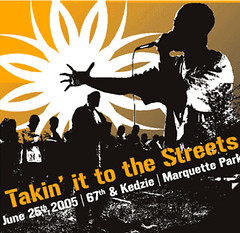
If you are going to be in Chicago on June 25, you should definitely check out Takin' It to the Streets, which is an amazingly positive day-long festival.
Featured Speakers:
Imam W.D. Mohammed, Imam Hamza Yusuf, Imam Zaid Shakir, Imam Siraj Wahhaj, Imam Umar F. Abd-Allah, Ilyasah Shabazz
Featured Performers:
Rock Steady Crew, All Natural, Jurassic 5, Brother Ali, Napoleon, MPAC, Allah Made Me Funny (National Comedy Tour), M-Team, Jamila Fidrause, Kuumba Lynx & Native Lynx
Community Forums and Workshops include:
Unity: Holding Fast to the Rope of Allah
Muslims & Hip Hop - A Forum for Outreach and Activism
Getting Involved with the Day Laborer Campaign (In Spanish and English)
Gender Issues & Islam
The Prophetic Tradition and Working for Social Justice: An Interfaith Perspective
Prisoner Reentry and Public Safety Hearings - IMAN is honored to host this public hearing as part of its work around the issues of recidivism and ex-offender reentry
Co-Sponsored by the Southwest Organizing Project (SWOP) and the Developing Justice Coalition - Please visit the the following link to understand what is entailed in conducting a public hearing:
The main organizers are the Inner-City Muslim Action Network (I.M.A.N.) and you can read about this event and their other projects on their website.
if not us, who?
How does the community organize itself in positive ways? How do we produce appropriate leadership? How do we get better, more effective organizations? Do we need to create flashy high-profile public relations - minded events? Or is it just a matter of encouraging ordinary people to come and do the quiet, non-flashy, anonymous work, and make the small but consistent contributions which improve communities.
I'm just throwing it out there
the last poets
"When the moment hatches in time's womb there will be no art talk. The only poem you will hear will be the spearpoint pivoted in the punctured marrow of the villain....Therefore we are the last poets of the world."
-South African poet, Keorapetse William Kgositsile
The Last Poets were born on May 19, 1968, at a celebration of Malcolm X's birthday. The seven (and seven seems like a fitting number) Black men who at one time or another were a part of the group are: David Nelson, Gylan Kain, Abiodun Oyewole, Felipe Luciano, Umar Bin Hassan, Jalal Nurridin, and the late Suliaman El Hadi.
Several are Muslim, but most are not. One (David Nelson) has become a Christian minister. One (Abiodun Oyewole) helped to found a Yoruba village in South Carolina. Some have re-defined themselves by giving themselves new names. Some have kept the names they were given at birth. The one Afro-Latino member (Felipe Luciano) was a co-founder of the Young Lords Party (a Puerto Rican group modelled on the Black Panthers).
The seven Black men who at one time or another were a part of the Last Poets manifested in themselves a wide and varied expression of the African-American (male) experience, both the positives and the negatives. One such negative is a minor turf war over who even gets to use the name "the Last Poets". Suliaman El-Hadi and Jalal Nuriddin, two Muslim members, have a released a few albums (with more Islamic lyrical content) under the name "Last Poets". But Abiodun Oyewole and Umar Bin Hassan have also released albums, and performed using the name as well (most recently on Def Poetry Jam). I'm not sure if religion was a part of the split between them but the lines seemed like they were drawn that way.
In the book "On a Mission", written by Umar and Abiodun (with Kim Green), Umar
says:I was into the Islamic thing for a while . It touched me, like it touches a lot of brothers who come out of the streets. The religion touches you because the first thing you learn is how to let go of arroogance, indifference, harshness, and coldness. For those who can agrasp the whole idea, it lets you give yourself to your lord and to find your true power.
(Although he later says he became disillusioned with the movement and went back to the streets. This is all before the more recent revival of the Last Poets which some would credit to the release of Umar Bin Hassan's solo album "Be Bop or Be Dead" in the early 90's )
A lot more could be said about the Last Poets and the lives of their members: Their status as the godfathers of conscious hip-hop, their importance as the voice of the 60's and 70's, their connections to the Black Panthers, contributions to Black, Latino, Muslim-American culture, etc.
But here are a few links to give further background information and perspective:
Jalal Mansur Nuriddin's webpage
interview with Abiodun Oyewole an original member of the group
A second interview with Abiodun
general history of the group by Professor R.A.P.
a brief page from This Far By Faith a PBS series about how religious faith acts in people's lives which touched on the Last Poets and Abiodun Oyewole.
a brief biography of Umar bin Hassan
the contrasts between the Last Poets and contemporary hip-hop
The 13 Point Program of the Young Lords from the Sixties Project website
A brief history of the Young Lords
The Young Lords in the context of Puerto Rican gangs in Chicago
